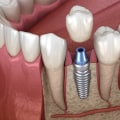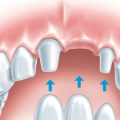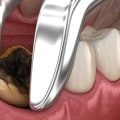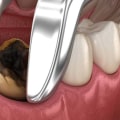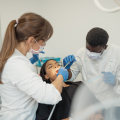When it comes to dental health, the presence of an abscess can be a cause for concern, particularly if it arises before or after a tooth extraction. An abscess is a collection of pus that forms due to a bacterial infection, often presenting as a painful, swollen area in the mouth. The question many patients ask is whether an abscess will go away after a tooth extraction. The answer is not always straightforward and can depend on several factors, including the severity of the infection and the overall health of the individual.
Firstly, it is essential to understand that a tooth extraction can sometimes be the best course of action to treat an abscess. If the infection is localized to a particular tooth, removing that tooth can eliminate the source of the infection. After the extraction, the body’s natural healing processes, along with appropriate medical treatment, can help in resolving the infection. Antibiotics are often prescribed before and after the extraction to ensure that the infection does not spread and to help the body fight off any remaining bacteria. The combination of these antibiotics and the removal of the infected tooth can lead to the resolution of the abscess.
However, the situation is not always this clear-cut. In some cases, an abscess may persist even after a tooth is extracted. This can happen if the infection has spread to surrounding tissues or bone, making it more challenging to eliminate. In such scenarios, additional treatment might be required. This could include a more extended course of antibiotics, draining the abscess surgically, or further dental procedures to address any remaining pockets of infection. It's crucial for patients to follow their dentist’s post-extraction care instructions meticulously to reduce the risk of complications.
Moreover, the success of an abscess resolving after tooth extraction heavily relies on the overall health and immune response of the patient. Those with compromised immune systems, such as individuals with diabetes, autoimmune diseases, or those undergoing treatments that affect immunity, may find it more difficult for their bodies to combat infections. For these patients, it might take longer for the abscess to heal, and they may require more intensive treatment and monitoring.
In addition to the immediate treatment of the abscess and extraction, long-term dental care is vital to prevent future abscesses. Regular dental check-ups, good oral hygiene practices, and a healthy diet are crucial components of maintaining oral health. Dentists often emphasize the importance of preventive care to catch potential problems early before they develop into more serious conditions.
Furthermore, it's important to acknowledge that dental abscesses can sometimes indicate broader health issues. For instance, poor dental hygiene, untreated cavities, and gum disease can all contribute to the formation of abscesses. Addressing these underlying issues is critical for preventing recurrence. Dentists might recommend additional treatments such as deep cleaning (scaling and root planing) or more frequent dental visits to manage and prevent gum disease and other contributing factors.
Integrated Dental emphasizes the importance of holistic dental care, where the focus is not only on treating the immediate problem but also on ensuring long-term health and preventing future issues. This integrated approach ensures that patients receive comprehensive care that addresses all aspects of their dental and overall health.
In conclusion, while a tooth extraction can often lead to the resolution of an abscess, it is not a guaranteed solution in every case. The effectiveness of this treatment depends on various factors, including the extent of the infection, the patient's overall health, and adherence to post-extraction care instructions. It is always recommended to consult with a dental professional to understand the best course of action for individual cases. By maintaining good oral hygiene and regular dental visits, patients can significantly reduce their risk of developing abscesses and other dental issues in the future.

